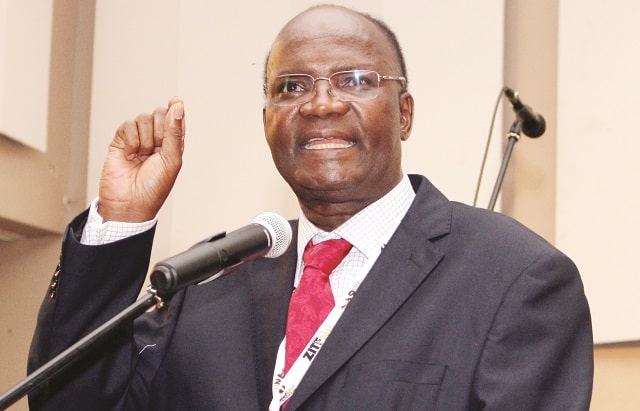Former Information Minister Jonathan Moyo has voiced his belief that the possibility of conducting a lawful general election in Zimbabwe on August 23, 2023, has significantly diminished. Moyo’s viewpoint arises from his response to an article published in the Sunday Mail, revealing that the government had made revisions to the Electoral Act. His statement can be summarized as follows:
Unfeasibility of Lawful General Election on August 23, 2023:
Persistent Delays in Resolving Nomination Disputes through Judicial Channels Have Irreparably Compromised the Election’s Integrity, Leading to Unauthorized and Unconstitutional Amendments to the Electoral Act by the Government
The aforementioned amendment, Statutory Instrument 140A of 2023, extended the deadline for the submission of postal voting materials to the Zimbabwe Electoral Commission (ZEC) from August 9 to August 20. However, due to legal challenges contesting nomination outcomes, eligible registered voters who qualify for postal voting have not yet received their ballots.
Moyo contends that this amendment to the Electoral Act goes against the constitution and violates Section 157(5) of the Zimbabwean Constitution, which explicitly states that alterations to electoral laws cannot be enacted after an election has been announced. He also emphasizes the lack of transparency regarding the printing and distribution of ballot papers, as mandated by electoral regulations. He articulates:
ZEC lacks the authority to modify the Electoral Act, whether during or outside an election period. Neither Parliament nor the Government possesses the legal authority to modify the Electoral Act or enact any law that affects elections subsequent to the proclamation of an election, with such changes applicable to that specific election. The proclamation for the harmonized general election on August 23 was officially announced on May 30, 2023. Section 157(5) of Zimbabwe’s Constitution stipulates that once an election is declared, alterations to the Electoral Law or any other election-related law are ineffective for that election’s purposes.
Given the present circumstances, Moyo raises several pertinent queries that currently lack reasonable answers. These queries include the timeline for distributing postal ballots to eligible voters, the receipt of these ballots by constituency and polling station officials, and the amalgamation of postal votes with other ballots during the counting process.
Moyo concludes that the electoral turmoil does not stem from any shortcomings of the Zimbabwe Electoral Commission but rather emerges from conflicts among opposition parties and candidates, judicial delays, and the non-adherence to time-constrained electoral procedures.
In light of these concerns, Moyo asserts that holding a legitimate and constitutionally sound election on August 23 is no longer attainable, thus thrusting Zimbabwe into an unparalleled electoral predicament.
It is crucial to acknowledge that this text encapsulates Jonathan Moyo’s standpoint and should be perceived as his subjective stance on the matter.
Jonathan Moyo argues that an election operates within a framework of regulations and cannot devolve into a situation where those in authority can manipulate the rules as they see fit. When these rules are violated, particularly to an extent that could impact the legitimacy or outcome of an election, proceeding with the election as if everything is normal becomes untenable.
The delays in dispatching postal ballot papers to eligible voters for the August 23, 2023, election, due to printing setbacks and unresolved nomination disputes, have rendered it implausible for postal votes to reach polling stations and be included in the vote tally alongside other ballots. These unparalleled delays have essentially rendered it unfeasible for a legitimate and credible election to occur on the planned date. He adds:
These extraordinary delays have coalesced to render it practically unviable for a legitimately credible election to transpire on August 23, 2023. An election that diverges from the rules as they existed at the commencement of the election fundamentally cannot possess credibility by its very definition.
Moyo cites the 2018 presidential election as an instance where the Zimbabwe Electoral Commission (ZEC) compromised the election’s credibility by instituting an unauthorized pathway for transmitting results. He contends that ZEC, as an autonomous entity, should seek guidance from the Constitutional Court to determine the lawful and constitutional resolution of the current crisis.
Continuing with the election amidst the current conditions not only jeopardizes the potential for disputed outcomes in local government, parliamentary seats, and the presidency but also imperils the integrity of the entire election. The considerable number of eligible postal voters holds significance, and their ballots could influence the election’s results.
Moyo concludes that conducting the election under these exceptional circumstances may undermine its credibility and lead to widespread disputes.













